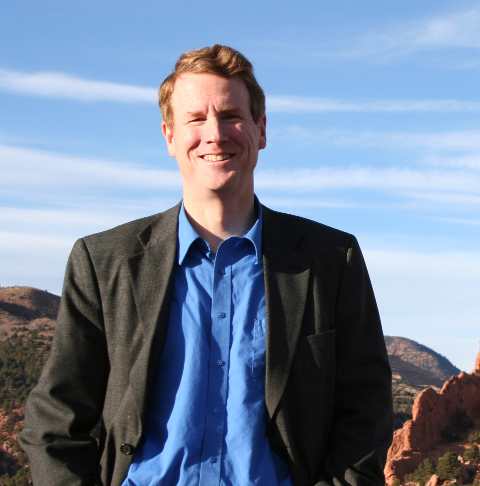Former Colorado congressional candidate and retired Air Force officer Hal Bidlack invoked race in questioning whether a “good guy with a gun” can stop a mass shooting.
In an opinion column published by Colorado Politics Bidlack attacked the National Rifle Association and NRA Executive Vice President Wayne LaPierre.
At the 2018 Conservative Political Action Conference in Maryland last week LaPierre said, “Lean in, listen to me now, and never forget these words: to stop a bad guy with a gun, it takes a good guy with a gun.”

“And what kind of good guy are we talking about,” Bidlack wrote, “Are you equally sanguine with, say, twenty-five young men of color walking around your neighborhood with AR-15s on their backs?” Bidlack went on to ask, “How about 50 young Latino men striding through Cherry Creek Shopping Center? What do you think would likely happen if, at the next school shooting, the police arrived to find, say, 10 members of the Nation of Islam running around with semi-automatic weapons, looking for the bad guy?”
His comments offend several leaders of minority communities, who question why Bidlack used race, religion and ethnicity to characterize people with guns as frightening.
“Race has nothing to do with it,” said former El Paso County Commissioner and state Senator Ed Jones, who is black. “I think it’s just pure nonsense, it’s a racist statement. I don’t understand why he would be making that assessment just because a minority had an AR-15. To use minorities as his focal point just means that he’s out of tune.”
Hugo Chavez-Rey, Chairman of the Colorado Hispanic Republicans, called Bidlack’s description of minorities with guns “condescending.”
“That’s the typical ad hominem type comment that you can expect from a Democrat in a futile attempt to marginalize the issue and try to use minorities as a pawn in the process,” Chavez-Rey said.
Anti-gun Democrats, he said, “put themselves up as the defender of rights of minorities and people who can’t speak for themselves or maybe who are marginalized and yet then come along at every opportunity they can and use them, they exploit them. They are always using them as props when all they really care about is the votes.”
Maria Del Carmen Guzman-Weese, a Hispanic naturalized American citizen, also questioned why Bidlack used minorities in a frightening scenario of individuals with guns.
“Isn’t that kind of a bigotry?” Guzman Weese asked. “Are we supposed to be scared of young Latino men? Are they throwing up a brush and painting all young Latino men with the same brush, they are all criminals?
Guzman Weese’s parents fled Cuba as political exiles when she was 10, and the family waited two years in Mexico to enter the United States legally. Second Amendment rights, she said, belong to individuals without regard for race, religion, or national origin.
“I have met a lot of young Latino men that are outstanding citizens, and I would never be afraid if I saw them with an AR-15 anywhere,” she said. “They are in the military, they are lawyers, they are doctors, they are going to university.”
The article is generating controversy on Facebook. “As long as people like him are around, sure we will have issues of race and society,” wrote Seeme Gull Khan Hasan. “He takes the time to write an article and then brings in minorities holding guns.” Hasan is a immigrant from Pakistan and spouse of prominent neurologist Dr. Malik Hasan, founder of Health Net, Inc., a major health insurance provider. The Hasans, who are naturalized Muslim-Americans, live in Pueblo.
Implying that gun owners are racists in responding to Hasan’s Facebook post Bidlack wrote, “I was arguing that the same people who see a group of white men walking around with AR-15s as just fine, would assume the worst and be scared by men of color exercising the exact same freedom.”
The unsuccessful 2008 Democratic candidate for Colorado’s Fifth Congressional District and resident of Colorado Springs, Bidlack is also well known for his 22 years of theatrically portraying Alexander Hamilton. “His portrayal captures the intellect, wit, humor, and humanity” of Hamilton, says Hamiltonlives.com.
“Obviously, he doesn’t know his history, he doesn’t know who Alexander Hamilton was and what he stood for,” Chavez-Rey said.
Hamilton commented on an armed citizenry in 1788 in the Federalist No. 29.
“Where in the name of common-sense, are our fears to end if we may not trust our sons, our brothers, our neighbors, our fellow-citizens?” Hamilton wrote. “What shadow of danger can there be from men who are daily mingling with the rest of their countrymen and who participate with them in the same feelings, sentiments, habits and interests?”


